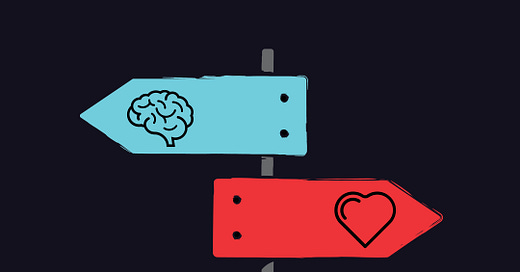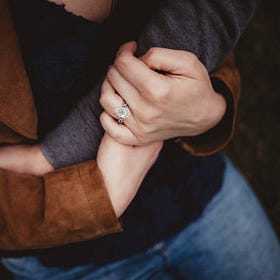Of beauty we speak, and of beauty we give up our hearts and minds, forsaking all that is true. Beauty cannot be found in the curve of a woman’s hip or in the rise of her breast, it is in her deeds and her actions while she is upon the face of the earth. Her beauty is in her tears and in her toil and in the greatness of her heart and courage of her convictions. Praise not a woman’s form but what is in her heart and her mind, lest you leave her destroyed.
Boys, or men for this matter, judge beauty quite differently, and whatever it is that one man may find desirable in a lady, another man may quite be wholly indifferent to it. Cliches haven’t really stopped being true because they are cliches, for there still remains to be some timeless truth in the age old saying: beauty lies in the eyes of the beholder, or, recently as it has been facetiously put, in the eyes of the beer-holder. For as it stands, we could all as well as be holding a bottle of beer in our hands, seeing how as experience has proved it, how we judge beauty turns out to be flawed whether we have a beer in our hands or not.
Love —or is it beauty?— has made many men mad. I will not speak of women, for reasons I like to think are obvious. Love and beauty often seem to go hand in hand with madness. “Love is a disease!” Jose Arcadio Buendia shouted angrily at Aureliano when he came to know of his love for Remedios Moscote. All the women in the world, and you choose to fall in love with the daughter of my enemy? Haven’t we read of kingdoms that have gone to war because of love? Or because of a woman’s beauty? Maybe the wars have stopped alright, but men have not stopped loving the wrong women, or to put it more rightly, men have not stopped loving women for the wrong reasons.
We have it that one such wrong reason happens to be beauty. I might very much be wrong in whatever I proclaim here, therefore, I am by no means prescribing ideals. I would be the worst person in the world to do so, and I would be out of my mind to think that I ever could. I verily acquiesce to my mistakes, and I apologize for the rage my oversights in this piece might awaken in you dearest reader.
You see, when I was yet young, I used to think that every light-skinned woman looked beautiful; when I grew a little older, I got into the habit of imagining how they would look if these same ladies had been dark, and suddenly, they were not beautiful anymore. I beg your forgiveness for such impertinence, and imbecility, but in my defense, I assure you that my last intention would be to disparage any woman by insinuating that she is ugly. We seem to have a little problem, however, given today women, many women at least, want to be judged by how they look, only that they get a little angry when our judgment isn’t in corroboration with what it is that they want to hear. Even ladies who probably are not so good-looking will get all fuming when they are told exactly what they already know about themselves. But again, why should a man bring that up, unless he is of course, an imbecile— which many men are?
What instruments of our being do we in fact use to judge love? Is it our heads, or is it our hearts? If it is our hearts, the scriptures clearly tell us how deceitful our hearts can be. So, as it is, love requires us to trust our hearts, deceitful as they are, otherwise we would never plunge ourselves with confidence into the murky waters of romance, and, more importantly, to distrust them in order to avoid thinking we are in love when we are not. Love demands that we find a balance. Things might have been different in days past, but today, many of us are clearly afraid of doing what it is exactly that makes relationships work. People are afraid of taking risks, but there is no love without a risk. To love genuinely is to take a risk. C. S. Lewis in Four Loves:
To love at all is to be vulnerable. Love anything, and your heart will certainly be wrung and possibly be broken. If you want to make sure of keeping it intact, you must give your heart to no one, not even to an animal. Wrap it carefully round with hobbies and little luxuries; avoid all entanglements; lock it up safe in the casket or coffin of your selfishness. But in that casket—safe, dark, motionless, airless—it will change. It will not be broken; it will become unbreakable, impenetrable, irredeemable.
People want relationships for the wrong reasons. I myself, might have wanted relationships for the wrong reasons. I ended up fumbling my chances, but now, while I look back, I cannot imagine having it any other way. I had to make the mistakes I did, so that I could learn the lessons I have learnt. And while I go on living, I am certain that I am yet to still make a dozen more. The only thing that gets at my heart is that human beings have been involved in these mistakes; hearts have been broken, and lives have been hurt, because I was learning my lessons. It would be freeing if I could learn these lessons on a cow, or a dog, or a lab-mouse, but why exactly will hurting these innocent animals be pardonable? It almost has come to a point in my life where I know that getting a lady closer to me will mean hurting her, and myself. The sane, and thoughtful thing to do would probably be not to allow myself fall in love. But then, isn’t that exactly what love is about, a willingness to bear the risk of being hurt?
When we men look at a lady, the first thing that catches our attention is her looks. Her form. Her figure. How most men judge which face is the most beautiful, however, I cannot make claims to know, given how I have found myself a little dissatisfied with the winners of beauty pageants. To me, they just are not sometimes the most beautiful of the contestants. “What was wrong with the judges?” I wonder. As it stands, however, maybe beauty isn’t the only thing that goes into winning in a pageant, or more importantly, in life. That is a little sobering.
But if it only had to do with looks, and form, and figure, what explanations would we give when in fact there’s evidence of people falling in love virtually. Sherry Turkle in Alone Together recounts her disillusionment at how texting has evolved into a space for confessions, breakups, and declarations of love. There is something to celebrate here, she says, a new, exuberant space for friendship, a way to blow a virtual kiss. But there is a price. All matters—some delicate, some not—are crammed into a medium that quickly communicates a state but is not well suited for opening a dialogue about complexity of feeling. Texting—interrupted by bad reception, incoming calls, and other text messages (not to mention the fact that it all goes on in the presence other people)—can compromise the intimacy it promises.
Looking back, those involved would embarrassedly admit that they never were in love, only delighting themselves in the thought that they were, for as long as it was convenient. When the reality of life shook things, the whole enterprise fell. We are only willing to love others so long as it is convenient, and there we miss it, because love is never convenient. Love, Christina Crook rightly clarifies in her eponymous book, is a Good Burden, in the sense that, it is among the burdens we cannot bear to be rid off; love makes us human. Love, therefore, we can go on to say, is a necessary burden.
Aside their beauty, which like I have said, others may judge differently, the ladies, who I have found myself loving, have mostly been those with whom I somehow shared particular interests. It had to do with us connecting at some level, and an appreciation of our love for something similar. But even that kind of love when put to the test, what comes out of it?
I have since realized, that very soon enough love has to go beyond outward beauty, and shared interests, and be founded on a commitment. Can we really ever predict if we will always be happy with the woman we think we are happy with today? It really wouldn’t be realistic, for truly there are days when our love will feel like it has faded. In Ask Pastor John Podcast, John Piper speaks to a young man about to divorce his wife on the grounds that he no longer loves her. Piper insists on the fact that even though the love might have faded, the marriage covenant remains.
The problem we are having could be that we are falling in love, and getting married; two great things, but once we fall out of love, we think of a divorce. It could be wrong to assume that we will always be in love. I think one thing that makes marriage work is the commitment to live with someone and love them, even if we feel like we don’t anymore; now that’s a covenant. And love, it turns out, isn’t something that comes automatically to us, rather, it is something we work on everyday. Love, even genuine love, is a fragile thing, and must be maintained and protected if it is to survive, writes James C. Dobson in What Wives Wish Their Husbands Knew About Women.
Love is a commitment, and a sacrifice. And for as long as we love our wives, they will always be beautiful, so that we won’t love our wives because they are beautiful, but they will be beautiful because we love them. When Paul instructs us to love our wives as Christ loved the Church, it is a reminder to us men that our love has to be constant. How many times do we miss the mark? And does Christ ever love us lesser? Does a mother love their child less because they have made a mistake? We have to love as if that is the only thing we can do, because it is. Much as there’s an allure in adultery, much as it feels exciting to be with another woman besides your wife, the grass is ever only truly greener where we water it. There’s no jumping ship when it comes to love, there’s only staying put and insisting on making it work.
In conclusion therefore, it suffices to say that love and marriage doesn’t always have to be based on madness. While very much sane and sober, we can choose someone, and commit to loving them despite their flaws. James Dobson makes it abundantly clear that God does not really perform a routine matchmaking service for everyone who worships him. He has given us judgment, common sense, and discretionary powers, and he expects us to exercise these abilities in matters matrimonial.
A friend once said that love is blind, I am not sure if it really is, and that marriage is an eye-opener, but even if it is, should we stop loving people as soon as we realize they are flawed? I am not here trying to convince a lady to go on loving a man who is clearly a jerk, and isn’t that what most men are? Imbeciles who you never really get to understand what it was exactly that you saw in them. I am only saying that there are very few perfect people in the world, and that blameless things don’t always have to be faultless.
Before you go, have a look at these ones:
No, I will not marry you
Today, during the Medical School Christian Union Sunday service, the speaker, unlike others we have had before, was a much older woman. After her profile was read, and she was invited to take the stage, her husband who had accompanied her, being faster, was the first to mount the dais. Or maybe that was just how they had agreed it would be before they l…
The Internal Sex Script
Is really there anything as powerful as the sensual when it comes to getting our attention? Aside lies and propaganda, sexual images seem to do really well as click bait. I am yet to know how far ladies go down this road, but most men are almost helpless when a naked woman's image is strategically placed before them. Once in a while, we'll look away, bu…








Very profound, wish this could penetrate more hearts.👏🏾
Insightful